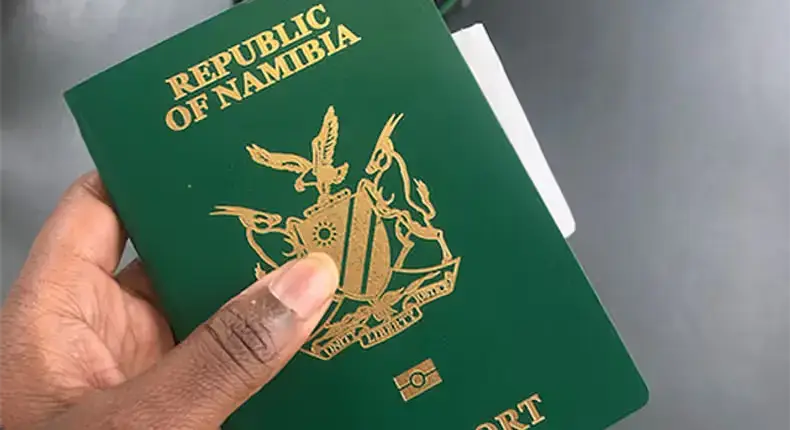
Namibia To Implement Visa Restrictions On UK, US, Canada, Other Western Countries April 2025

The Namibian government has announced a new policy to impose visa restrictions on some Western countries, including Canada, Germany, the United States (U.S.), the United Kingdom (U.K.), and 29 other countries, starting April 2025. The policy requires citizens of these countries to have a visa to enter Namibia.
This move aims to reciprocate and address the disparity in visa requirements between Namibia and Western countries, which have imposed stricter visa regulations on Namibian citizens.
A statement from Namibia’s immigration ministry read:
Namibia has extended gestures of goodwill and favourable treatment to nationals of various countries. However, despite these efforts, certain nations have not reciprocated. In light of this disparity, the government has deemed it necessary to implement a visa requirement to ensure parity and fairness in diplomatic interactions.
However, unlike African passport holders who must obtain their visas in advance, people visiting Namibia could buy their 90-day visa, costing $90, upon arrival.
Speaking to BBC, Michelle Nehoya, a Namibian citizen, said:
“It feels like Namibia is standing up for itself. We’ve been giving visa-free access to these countries, but they haven’t reciprocated. It’s time for a change.”
In 2022, seven of the top 10 countries with the highest visa rejection rates within the Schengen area were African. Nigeria was second on the list, with 48.5 per cent of rejected applications.
A recent report revealed that the European Union made more than €53m ($58m; £45m) on rejected visa applications from African countries in 2023.
While this step by the Namibian government poses a cause for concern for Namibia’s tourism industry, another citizen expressed that: “If I need to bring bank statements… and all sort of documents and still buy visa just to gain entry to a country, that country should also do the same to gain entry to my country.”
Read More:
- Kenyans Have the Rights to Protest, U.S. Govt Tells President Ruto
- H1 2024: Nigeria’s Vehicle Imports Drops By 60% Due To Naira Volatility, High Customs Duties
About The Author
Related Articles
Tinubu Follows Gumi’s Lead as Nigeria Signs Turkey Defence Deal, Fueling Speculation Over Who Really Controls the Country’s Security Policy
Nigeria’s diplomatic and security strategy is once again under scrutiny after a...
ByWest Africa WeeklyJanuary 28, 2026Burkina Faso President Ibrahim Traoré Reviews 2025 Achievements, Sets Ambitious Agenda for 2026
Burkina Faso’s President, Ibrahim Traoré, has described 2025 as a year of...
ByWest Africa WeeklyJanuary 28, 2026Mali Says Reports of New Three-State Sahel Currency Are False but Talks Continue on Economic Integration
Mali’s government has rejected claims that it and its neighbours, Burkina Faso...
ByWest Africa WeeklyJanuary 28, 2026CBN Upgrades Opay, Moniepoint, Kuda and Others to National Licences
The Central Bank of Nigeria has upgraded the operating licences of several...
ByWest Africa WeeklyJanuary 28, 2026











